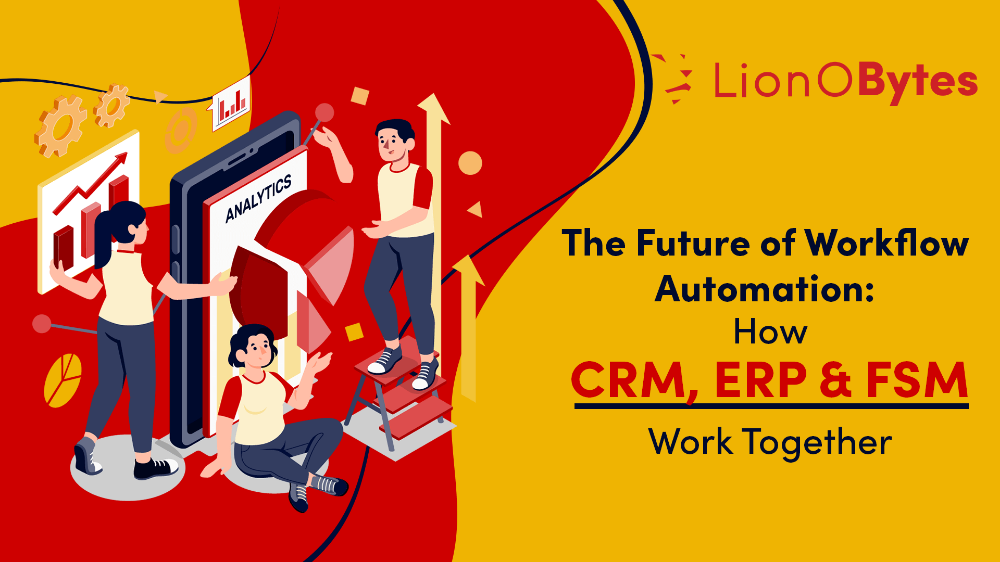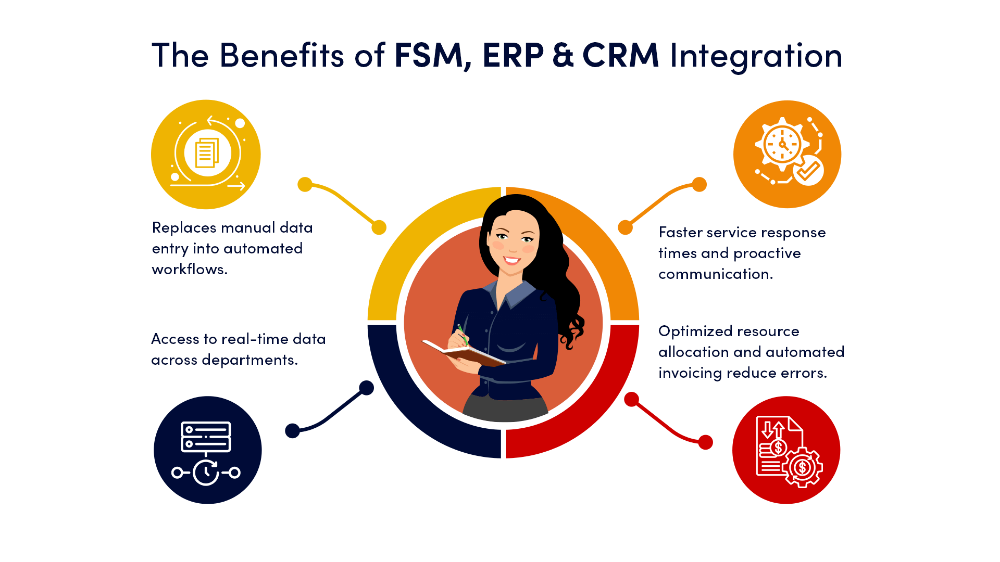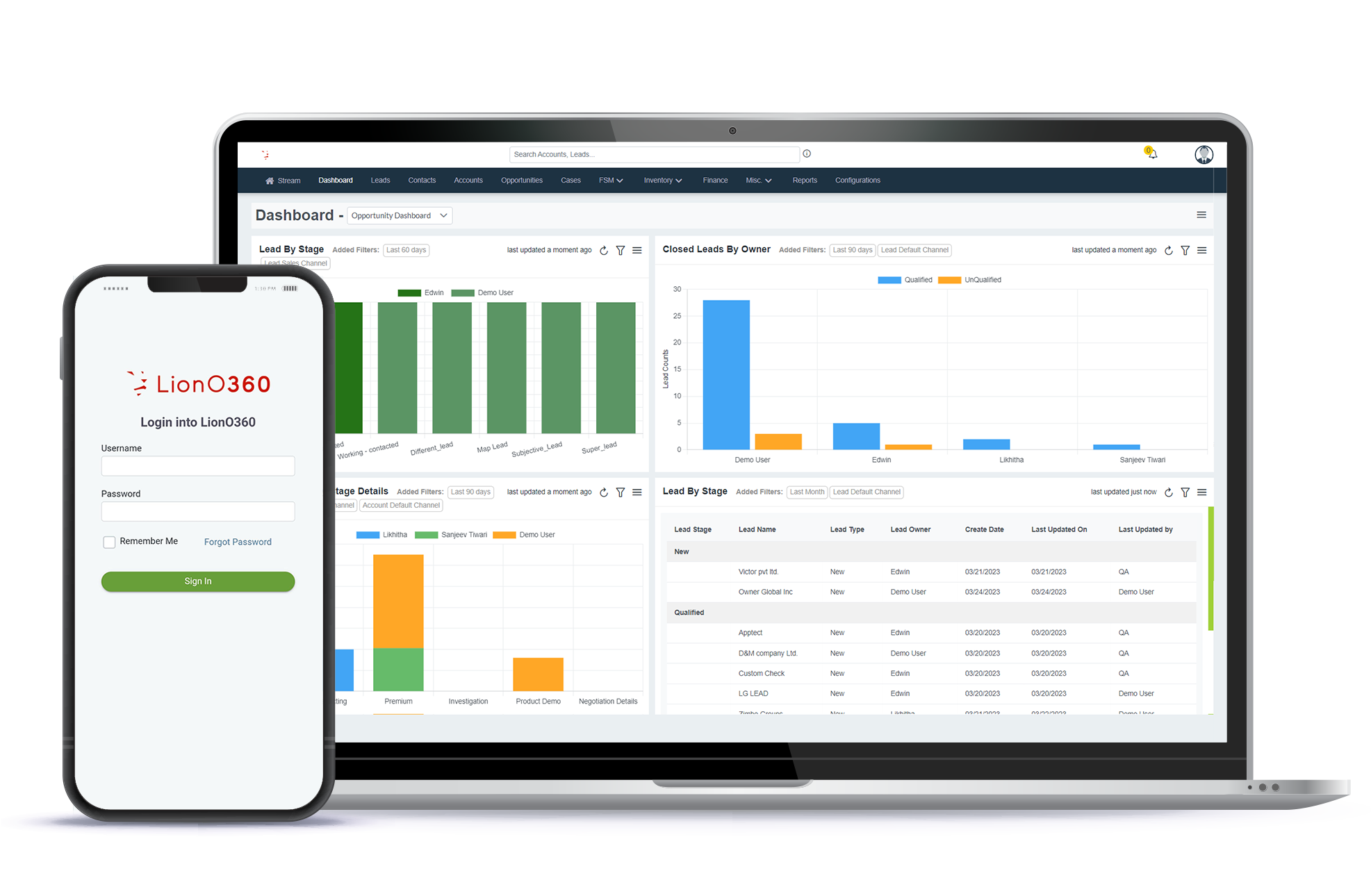
In today's fast-paced digital world, organizations are always searching for ways to improve processes, gain efficiencies, and therefore improve customer satisfaction. Automation is the largest driver of this change, and three key business systems are laying the foundation for the future of workflow automation:
- Customer Relationship Management (CRM)
- Enterprise Resource Planning (ERP)
- Field Service Management (FSM)
These systems, if appropriately integrated, can simplify workflows, minimize manual work, and enhance decision making. If you keep reading, we will discuss how CRM, ERP and FSM fit into each other, their advantages, and the future of Workflow Automation software.
Understanding CRM, ERP, and FSM
Before delving into their integration, let's first understand what each system does and why it is vital for business operations.
Customer Relationship Management (CRM)
CRM systems help manage customers, lead, and opportunity interactions. It helps companies manage sales, marketing complications, and customer support. For example, LionO360 CRM is one of the best CRM for contact management.
Enterprise Resource Planning (ERP)
ERP systems manage core business processes. Business processes typically involve finance, supply chain management, procurement, human resources, and inventory. ERP software helps organizations run more efficiently by centralizing data and automating standard repetitive processes. Examples of ERP software include LionO360 ERP, SAP ERP, and Microsoft Dynamics 365 ERP.
Field Service Management (FSM)
Field service management systems purposefully help manage field service-related business processes. Business processes may involve dispatching technicians, scheduling service appointments, managing inventory, or compliance. This is critical for industry players who engage in field service exchanges, HVAC, telecommunications, or utility management. Examples of leading field service management software solutions include LionO360 FSM, Salesforce Field Service, and Oracle Field Service Cloud.
The Power of Integration: How CRM, ERP & FSM Work Together
Individually, CRM, ERP, and FSM are powerful tools, but their true potential is unlocked when they are integrated into a seamless workflow. Here’s how they work together:
1. Seamless Data Flow
One of the biggest challenges businesses faces is data silos. CRM, ERP, and FSM systems collect and store vast amounts of data, but if they operate in isolation, inefficiencies arise. Integrating these systems ensures that customer data, financial records, and service schedules are always up to date and accessible across departments.
For example, when a customer request is logged in the CRM, the ERP system can automatically check inventory levels, and the FSM can schedule a technician for installation or repairs.
2. Enhanced Customer Experience
A fully integrated system improves customer service by ensuring that all departments have access to the same real-time data. When a customer calls for support, service agents can quickly access their purchase history (CRM), check warranty details and service contracts (ERP), and schedule a technician (FSM) without delays.
3. Improved Decision-Making with Analytics
Data-driven decision-making is a cornerstone of modern business strategy. By integrating CRM, ERP, and FSM, businesses can leverage comprehensive analytics to forecast demand, optimize resource allocation, and enhance service delivery. AI-powered insights from these integrated systems can help businesses anticipate customer needs and proactively address issues before they escalate.
4. Automation of Workflows
Automation eliminates repetitive manual tasks, reducing errors and saving time. A common example is a business process workflow automation, where new sales recorded in the CRM triggers an order fulfillment process in the ERP, followed by an automatic scheduling of field service in the FSM.
For instance, if a customer purchases a new product requiring installation, the system can generate an invoice, deduct the product from inventory, assign a field technician, and send a confirmation email—all without manual intervention.
5. Cost Efficiency and Scalability
Businesses can reduce operational costs by eliminating redundant tasks and improving efficiency through integrated automation. Additionally, as companies grow, they need scalable solutions that can handle increased demand without causing bottlenecks. A well-integrated ecosystem ensures that scaling up does not result in fragmented workflows or system breakdowns.

The Future of Workflow Automation with CRM, ERP & FSM
Technology continues to evolve, and the future of workflow automation will be shaped by advancements in artificial intelligence (AI), machine learning (ML), and the Internet of Things (IoT). Here’s what we can expect in the coming years:
1. AI-Powered Predictive Analytics
AI and ML will play a more significant role in analyzing historical data to predict trends, customer behavior, and equipment failures. This will enable businesses to take proactive measures, reducing downtime and improving service delivery.
2. Hyper Automation
Hyper Automation, a concept where businesses automate as many processes as possible using AI and robotic process automation (RPA), will revolutionize how CRM, ERP, and FSM interact. Tasks such as invoice processing, service ticket creation, and inventory management will become fully automated.
3. IoT-Driven Field Service Management
With IoT integration, devices in the field can automatically send alerts when maintenance is required. For example, a smart HVAC system could detect an issue and trigger a service request in the FSM system without human intervention.
4. Blockchain for Secure Transactions
Blockchain technology will enhance security and transparency by providing immutable records of transactions, contracts, and service agreements across CRM, ERP, and FSM systems.
5. Unified Cloud-Based Platforms
Cloud-based solutions will continue to gain traction, allowing businesses to integrate their CRM, ERP, and FSM systems into a single unified platform accessible from anywhere. This will facilitate real-time collaboration between teams and improve operational agility.
Enhance Your Workflow with LionO360 CRM, ERP & FSM
Improve your business operations with LionO360's integrated CRM, ERP, and Field Service Management solution - the only system you'll need to improve your business workflows, productivity and grow your business.
The integration of CRM, ERP, and FSM is no longer a luxury—it is a necessity for businesses looking to thrive in an increasingly competitive environment. By breaking down data silos, automating workflows, and leveraging AI-driven insights, companies can optimize operations, reduce costs, and deliver superior customer experiences.
Our embedded CRM gives you complete 360° insights about your customers, extends your sales and service capabilities with AI-driven automation, and our powerful ERP will improve financials, inventory tracking, and supply chain productivity with real-time visibility and reporting. A smart FSM system will completely optimize field operations with intelligent scheduling, a mobilized workforce, and automatic service ticketing. LionO360 breaks down data silos, automates workflows across departments, and drives your businesses to get to data driven decisions sooner and at scale - from one solution that scales with your business. Change your business workflows today with LionO360's end-to-end solution for connected operations.
Also Read: Key Benefits of Workflow Automation
Frequently Asked Questions
1. What is CRM, ERP, and FSM systems?
- Customer Relationship Management systems focus on managing interactions with customers, leads, and prospects. They help businesses track sales, manage marketing campaigns, and provide customer support.
- Enterprise Resource Planning systems manage core business processes, including finance, supply chain management, human resources, and inventory, enabling organizations to operate more efficiently.
- Field Service Management systems help companies manage their field operations, including dispatching technicians, scheduling service appointments, and tracking inventory for on-site services.
2. How do CRM, ERP, and FSM systems work together?
When integrated, CRM, ERP, and FSM systems facilitate seamless data flow across departments, ensuring that customer data, financial records, and service schedules are always up to date. For example, a customer request logged in the CRM can trigger inventory checks in the ERP and technician scheduling in the FSM. This integration enhances customer experience and improves decision-making through comprehensive analytics.
3. What are the benefits of integrating CRM, ERP, and FSM?
The integration of these systems offers several benefits:
- Enhanced Customer Experience: Teams have real-time access to customer information, enabling quicker responses and better support.
- Improved Decision-Making: Integrated analytics provide insights that help businesses forecast demand and optimize resource allocation.
- Automation of Workflows: Repetitive tasks can be automated, reducing errors and saving time.
- Cost Efficiency and Scalability: Businesses can reduce operational costs and scale effectively without workflow disruptions.
4. What does the future hold for workflow automation with CRM, ERP, and FSM?
The future of workflow automation will be influenced by advancements in technology such as:
- AI-Powered Predictive Analytics: Businesses will use AI to analyze data for proactive decision-making.
- Hyper automation: Automation of as many processes as possible to streamline operations.
- IoT-Driven Field Service Management: Devices will automatically trigger service requests, enhancing efficiency.
- Blockchain for Secure Transactions: Ensuring transparency and security in transactions across systems.
- Unified Cloud-Based Platforms: Cloud solutions will enable integrated access to CRM, ERP, and FSM systems, facilitating collaboration and agility.







